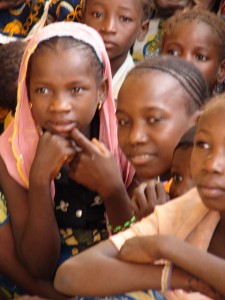In May, in Cape Town, South Africa, a panel discussion organized by the International Fund for Agricultural Development (IFAD) and the South African Institute for International Affairs (SAIIA) met to address the future role of agriculture in rural development. Kanayo Nwanze, keynote speaker and president of the IFAD, outlined the main points covered in the organization’s Rural Poverty Report 2011.

“Agriculture offers enormous promise for Africa. Numerous studies show that GDP growth generated by agriculture is more than twice as effective in reducing poverty as growth in other sectors,” said Nwanze to the group of agricultural ministers and experts. He also expressed confidence in the ability of Africans to help themselves, saying that the transition out of rural poverty must be a transformation from within. “Change cannot be imposed from the outside. But when it is cultivated from within — with, as we say in agricultural development, some external inputs—then every tree and every plant will be able to root itself in its own soil and flourish.”
The new Rural Poverty Report indicates that over two thirds of people living in extreme poverty today (those living on less than US$1.25) live in the rural areas of developing countries. The report also highlights that four-fifths of households in these parts of the world do some degree of farming. With access to knowledge about better farming practices, these people could see a significant improvement in their quality of life. Nwanze emphasized the importance of giving impoverished people access to the resources they need, not seeing them as victims in need of endless foreign charity.
The Rural Poverty Report highlights four main courses of action: the overall improvement of rural environments, including infrastructure and governance; the management and reduction of agriculture-related risk; the education of populations about economic opportunities; and the support of collective endeavors, which increase security, power, and confidence.
According to Nwanze, “we know that when poor people are empowered, when they are seen and treated as the productive resources that they are, they can be the agents of sustainable and lasting change…. At IFAD, we know that there is no magic bullet, no secret formula that will eliminate poverty and hunger over night. But there are solutions that, when tailored to the realities of a specific region, or even a specific village, can transform lives.”
By Kamaria Greenfield

Danielle Nierenberg, an expert on livestock and sustainability, currently serves as Project Director of State of World 2011 for the Worldwatch Institute, a Washington, DC-based environmental think tank. Her knowledge of factory farming and its global spread and sustainable agriculture has been cited widely in the New York Times Magazine, the International Herald Tribune, the Washington Post, and
other publications.
Danielle worked for two years as a Peace Corps volunteer in the Dominican Republic. She is currently traveling across Africa looking at innovations that are working to alleviate hunger and poverty and blogging everyday at Worldwatch Institute’s Nourishing the Planet. She has a regular column with the Mail & Guardian, the Kansas City Star, and the Huffington Post and her writing was been featured in newspapers across Africa including the Cape Town Argus, the Zambia Daily Mail, Coast Week (Kenya), and other African publications. She holds an M.S. in agriculture, food, and environment from Tufts University and a B.A. in environmental policy from Monmouth College.








